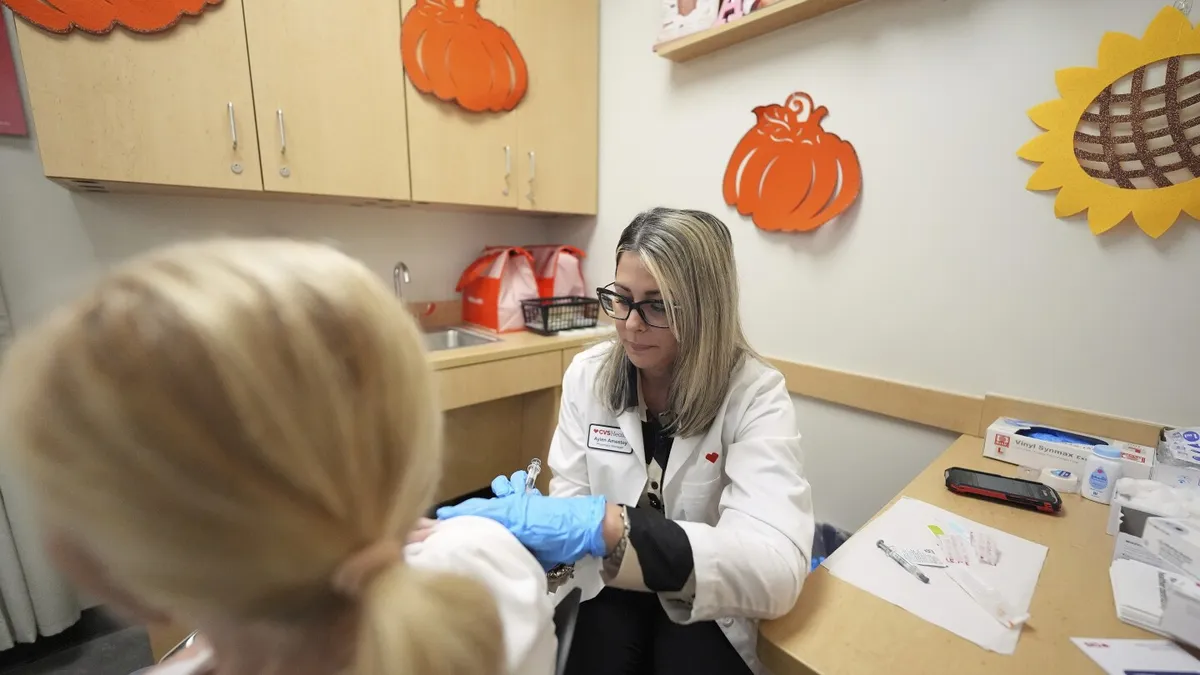
This fall, drugstores across the country are gearing up to deliver updated COVID-19 vaccines. Insurers have announced plans to cover these vaccines, despite the absence of a specific recommendation from a key government committee. Recently, vaccine advisers appointed by Health Secretary Robert F. Kennedy Jr. chose not to make a definitive recommendation for the shots but emphasized that individuals should make their own decisions regarding vaccination.
The recommendations provided by the advisers to the Centers for Disease Control and Prevention (CDC) require approval from the agency's director, which is typically a formality. These recommendations usually trigger multiple layers of insurance coverage, allowing drugstores in numerous states to offer the vaccines. However, both insurers and government officials have confirmed that coverage will persist. Several states have also facilitated access to vaccines through pharmacies, which remain the most common venue for receiving shots.
As winter approaches, many individuals begin seeking vaccinations in late summer or early fall to ensure protection against potential surges in COVID-19 cases. So, what can you expect regarding insurance coverage for these vaccines?
Most insurers are anticipated to cover the updated COVID-19 vaccines, but it's advisable to verify with your specific provider. The Department of Health and Human Services stated that the committee's vote “provides for immunization coverage through all payment mechanisms.” This includes coverage through Medicaid, the Children’s Health Insurance Program, commercial policies sold via health insurance marketplaces, and the federal Vaccines for Children (VFC) program, which funds approximately half of childhood vaccinations in the U.S. annually.
The trade group America’s Health Insurance Plans recently announced that its members will continue to cover the vaccines at no cost to patients through 2026. This group encompasses nearly every major insurer, with the exception of UnitedHealthcare. However, UnitedHealthcare has indicated that it will continue to provide the vaccine at no cost under its standard commercial coverage, which includes plans available for individuals and small businesses. It's important to note that large employers offering coverage will make their own decisions regarding vaccine coverage, often motivated by the potential to avoid costly hospital bills associated with severe COVID-19 cases.
According to CDC data, approximately two-thirds of adults receive their COVID-19 shots at pharmacies, while around 30% get vaccinated at doctors’ offices. Access to vaccines has improved significantly since the initial rollout, which faced challenges that required some individuals to travel to neighboring states to secure appointments. Major drugstore chains like CVS have confirmed that their locations are fully stocked with the latest vaccines and are equipped to administer vaccinations in all 50 states and Washington, D.C. Notably, prescriptions are required in D.C. and a few states, including Florida and Georgia, as indicated by CVS Health spokeswoman Amy Thibault. Similarly, Walgreens mandates prescriptions in certain states, as confirmed by a company spokesperson.
Historically, the U.S. has recommended annual COVID-19 vaccinations for everyone aged 6 months and older. The U.S. Food and Drug Administration (FDA) has recently approved the vaccines for individuals aged 65 and older, as well as for younger adults and children who are at high risk for severe COVID-19. The CDC maintains a comprehensive list of conditions that may increase the risk of severe illness, including asthma, cancer, heart or lung issues, obesity, depression, and a history of smoking. Individuals who are physically inactive also fall into this category, and it’s important to note that this list is not exhaustive. Patients who are uncertain about their risk status should consult with their healthcare provider.
Both CVS and Walgreens representatives have stated that their companies will inquire about high-risk factors for patients under the age of 65, although they will not require proof of these conditions. “In simplest terms, if a patient says they’re eligible, they will get the vaccine,” Thibault stated.
For more information on COVID-19 vaccines, consult your healthcare provider or visit official health department websites.